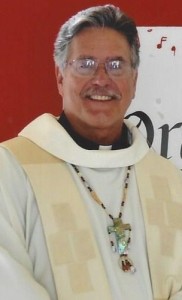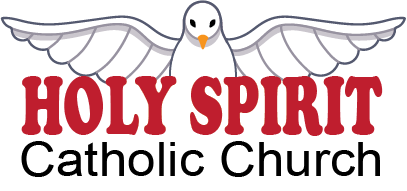Sunday’s Readings: 2 Kings 5:14-17; Psalms 98:1, 2-3, 3-4; 2 Timothy 2:8-13; Luke 17:11-19
……from your Pastor’s Desk
What the Nine Lepers got Right
This weekend we have the story of the ten lepers who asked Jesus for healing. Lots of times, when we hear this story, nine of the lepers are portrayed as ungrateful. A word or two on their behalf is in order. They all approached Jesus and called out to him “Jesus, Master, have mercy on us.” They all obeyed his command to go show themselves to the priest. As we hear their retreating footsteps, let’s give them more respect than we usually do. They’re heading in the direction he told them to head. They’re not heading for a bar, a golf course, the Lake or a casino. They headed for the Levitical priest, and this is, remember, before they have even seen any evidence of their cleansing. So let’s cut them some slack. They knew to whom to call out for healing. They believed Jesus when he said it was a done deal, even before the evidence was before their eyes. And they did what he said. Jesus didn’t say, “Go, show yourselves to the priest, but, on the way, as soon as you see your flesh has been cured, high tail it back to me with a thank you note.”
Perhaps, so caught up in the moment – they were thinking ahead. Let me explain. The purpose of visiting a temple priest after a cure (Luke 5:14; Leviticus 13:49; 14:2) was so the cured person could officially resume his place in society. The nine lepers, presumably Jewish, had their minds on the future, on resuming the life they had left behind with the onset of illness. Their minds were full of scenes of reunion with wives, children, with reentry into market and synagogue. There is no indication that their goals and future actions were anything but respectable and legal.
But they were lacking something. The one leper, the “foreigner,” who returned to thank God, was “made well,” (in Greek –sozo– “to be healed of spiritual disease and death”) whereas the nine were merely “cleansed” or “healed” (in Greek –tharizo– “to be made clean or healed of a disease”). Physical cure (tharizo), the verb used twice and translated in the NRSV “made clean” (14) and “healed” (15) is not the same as “made you well,” or “made you whole” (sozo), a condition often referred to as “salvation.” When Jesus says, “your faith has made you well,” sozo is the verb he uses. Aha!
In Luke’s context, he is making a polemical point: Only the foreigner is grateful for the grace received. The others think solely of the benefits received. The ‘ungrateful nine’ exemplify the general attitude of Jesus’ people towards his mission. The Samaritan is prophetic of the future response of gentiles to the gospel.
How does Jesus’ emphasis on gratitude impact our church, our life? Why is gratitude crucial to wholeness of mind, body and spirit, to what the New Testament calls “salvation?”
What’s the point of gratitude? Why is gratitude to God crucial to wholeness of mind, body and spirit, to what the New Testament calls “salvation?” Apparently, to be made well, we must add thanksgiving to our faith. The person who makes such acknowledgement experiences a salvation that goes beyond the merely physical cure. It is a reorientation of the inner life.
I’ve been thinking about gratitude lately. I’ve been thinking about people who have given me gifts in the past to whom I have expressed thanks. I’ve been thinking about people who, recently, have thanked me. And I’ve been thinking about people I need to thank.
-How is our impulse to thank others related to our impulse to thank God?
-What does gratitude contribute to our being made well in body, mind and soul?
-Why is it so important that Jesus would chastise those who didn’t value it?
-Does gratitude keep us connected with the giver of the gift?
-Does recognizing the source of a gift keep us using it in keeping with the giver’s character and values?
-Does gratitude keep us grounded in the value of the gift as we take it into new pursuits and places?
All good gifts come from God. An attitude of gratitude it itself a gift from God.
Yea, I’ve been thinking about gratitude lately.
And I’ve been thinking about people I need to thank.
Let me start by saying; Thank You!
Father Ron

